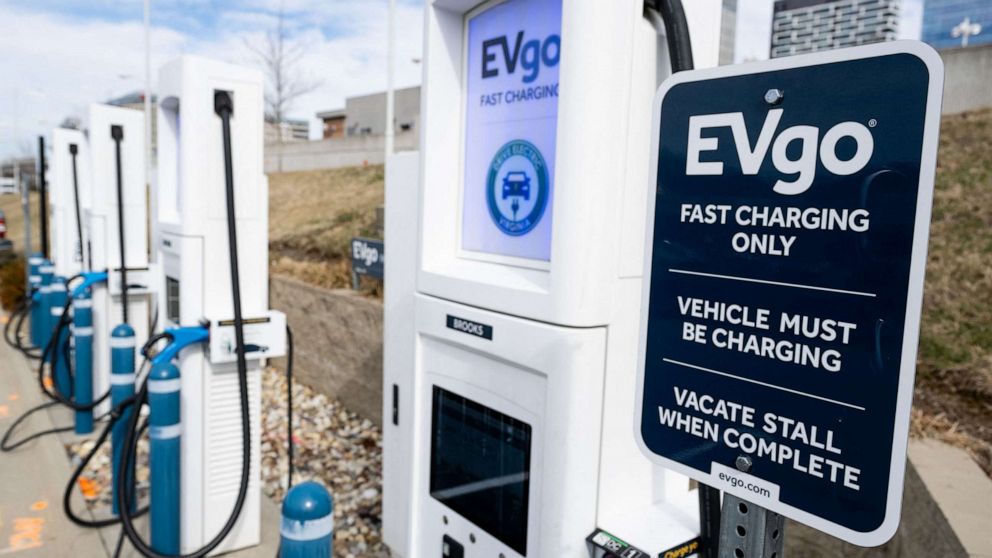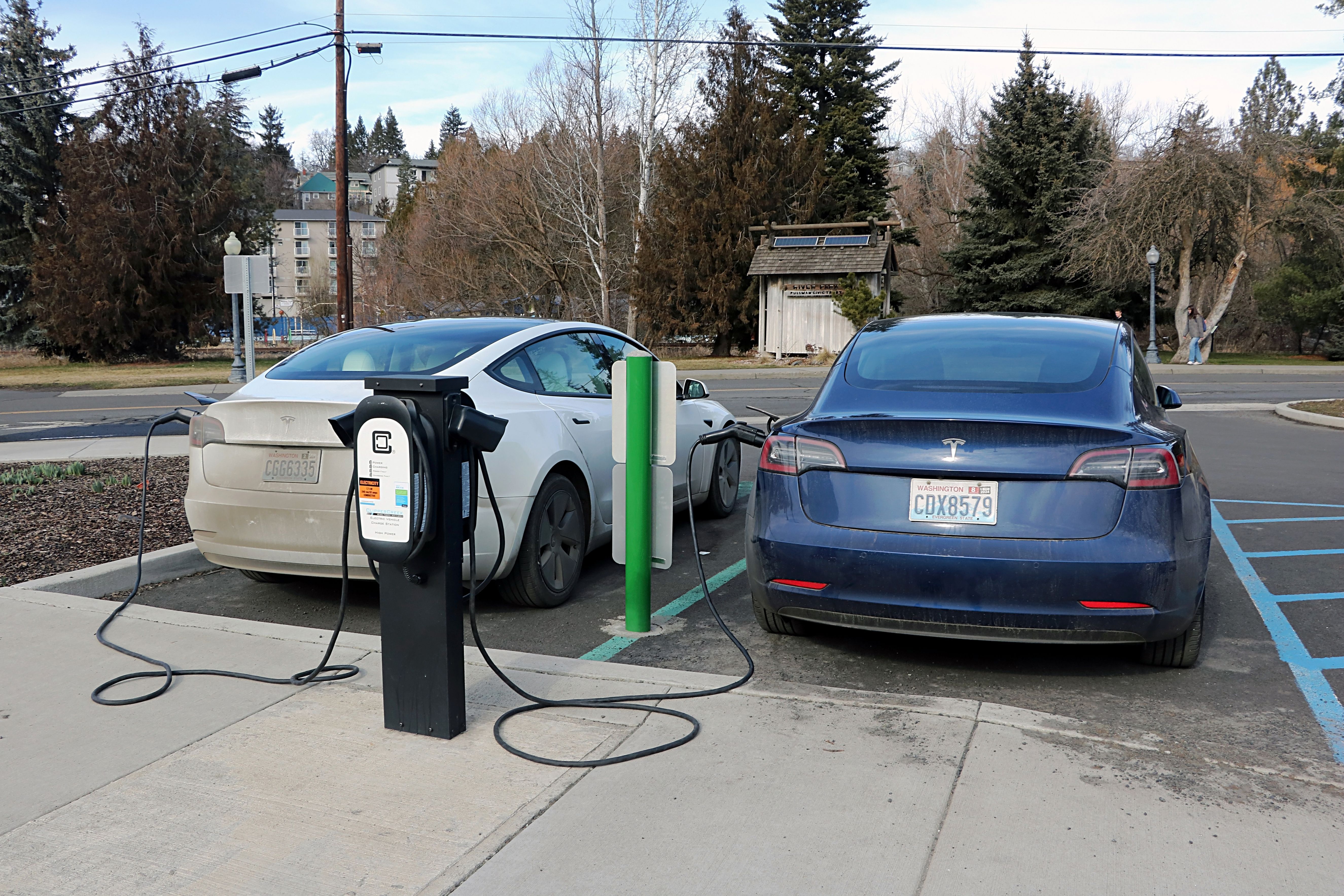Everything You Should Know Before You Decide to Buy EV Charging news
Everything You Should Know Before You Decide to Buy EV Charging news
Blog Article
Leading EV Charging Information: Secret Updates on Framework and Advancement

Recent Innovations in Fast-Charging Innovation

Additionally, improvements in battery modern technology, including enhanced thermal monitoring systems and higher power density batteries, complement fast-charging capabilities. These advancements alleviate the danger of battery deterioration throughout rapid charging, ensuring longevity and performance for EV owners.
In addition, the combination of wise billing services is improving user experience, allowing real-time tracking and vibrant pricing designs. EV Charging news. This versatility enables motorists to maximize billing times and expenses based upon grid demand
As car manufacturers proceed to purchase fast-charging networks, the cooperation between market stakeholders is essential. Collaborations between billing station providers and automotive producers are leading the way for extensive protection, ultimately cultivating a more durable EV ecosystem. These innovations are critical in sustaining the change to sustainable transportation.
Government Initiatives for Charging Growth
Government initiatives play an essential function in the development of electrical car (EV) billing framework, promoting the shift to lasting transportation. Different federal and state programs are being executed to improve charging ease of access, lower the financial problem on customers, and advertise the fostering of electric lorries.
Especially, the U.S. federal government has alloted significant financing with the Facilities Investment and Jobs Act, which earmarks $7.5 billion for EV charging network growth throughout the country. This financing is targeted at releasing thousands of brand-new charging stations, particularly in underserved locations, therefore addressing range anxiousness among prospective EV purchasers.
In addition, numerous states are enacting regulation to simplify the allowing process for billing terminal installments, which is essential for accelerating release. Motivations such as tax credit scores and discounts for both customers and businesses are additionally being introduced to encourage the setup of billing infrastructure.
Moreover, public-private partnerships are significantly becoming an emphasis, leveraging private financial investment to complement government financing. These initiatives emphasize a collaborative technique crucial for developing a comprehensive and effective EV billing network, ultimately adding to a greener and even more sustainable future.
Cutting-edge Battery Solutions Enhancing Effectiveness
Revolutionizing the landscape of electrical car (EV) technology, ingenious battery options are significantly boosting effectiveness and performance. Breakthroughs in battery chemistry, specifically with lithium-sulfur and solid-state batteries, are leading to increased energy thickness, which permits for longer varieties and faster charging times. These new battery types have the prospective to outshine standard lithium-ion batteries by using greater abilities while decreasing weight, therefore improving total car performance.
Moreover, developments in battery administration systems (BMS) are enhancing power usage and expanding battery life-span. Intelligent formulas keep an eye on battery wellness and efficiency, enabling real-time adjustments to billing and discharging procedures. This not only boosts the effectiveness of the battery but likewise ensures a much more reliable and sustainable energy source for EVs.
Additionally, the combination of recycling go modern technologies is attending to the environmental influence of battery production and disposal. Innovations in second-life applications for EV batteries are promoting their usage in power storage space systems, adding to a round economic climate.
As these innovative battery services proceed to develop, they guarantee to transform the EV market, making electrical cars much more enticing and easily accessible to a more comprehensive audience while supporting international sustainability goals.

Collaboration Between Automakers and Charging Networks
Recognizing the important need for a robust billing infrastructure, car manufacturers are increasingly working together with billing network providers to improve the EV ownership experience (EV Charging news). These partnerships aim to develop a smooth charging ecosystem that benefits consumers and supports the shift to electrical cars
Significant automobile brands are joining forces with recognized billing networks to expand their charging station protection, guaranteeing vehicle drivers have accessibility to trustworthy and hassle-free site link charging alternatives. For circumstances, collaborations with networks like ChargePoint and Electrify America allow car manufacturers to incorporate billing options directly into their vehicles' navigating systems, guiding customers to the nearby stations and supplying real-time accessibility updates.
Moreover, these partnerships usually lead to the development of fast-charging modern technologies that substantially lower the moment needed to charge an EV. By pooling resources and proficiency, automakers and charging networks can introduce quicker, creating remedies that satisfy the expanding need for electric wheelchair.
Additionally, joint efforts may additionally cause more standard billing protocols, which can minimize customer complication and advertise broader EV adoption. Generally, these tactical partnerships are critical in building a straightforward and reliable charging facilities that fulfills the needs of a broadening electric vehicle market.
Challenges Facing EV Charging Facilities
As the electrical lorry market proceeds to grow, numerous obstacles are surfacing that prevent the development of an extensive charging facilities. Among the key challenges is the insufficient number of charging stations, specifically in country and underserved metropolitan locations. This gap produces variety stress and anxiety amongst possible EV purchasers, preventing them from making the switch.
In addition, the absence of standardization in charging technology makes complex the infrastructure landscape. Variants in plug kinds and billing speeds can create complication for users and enhance functional complexities for charging network operators.
An additional pushing issue is the high expense related to the installment and maintenance of charging stations, which can be a barrier for both exclusive companies and public entities. Regulatory difficulties and zoning constraints can delay the implementation of charging framework, impeding progress in expanding crucial solutions. Dealing with these challenges will be important for promoting a durable EV community that sustains the transition to sustainable transport.
Conclusion
Finally, the ongoing developments in EV charging modern technology, supported by considerable federal government campaigns and ingenious battery options, are essential for the growth and effectiveness of electrical car facilities. Cooperations in between car manufacturers and charging providers even more improve station coverage, addressing the expanding need for available billing choices. In spite of obstacles that continue within the EV billing landscape, these developments symbolize a positive trajectory towards an extra efficient and lasting electric lorry ecological community.
Advancements in billing infrastructure have led to the growth of ultra-fast chargers qualified of providing up to 350 kW of power, considerably reducing charging times. Variants in plug types and billing speeds can create confusion for individuals and raise functional complexities for billing network operators.In verdict, the recurring advancements in EV charging technology, supported by significant government initiatives and ingenious battery remedies, are vital for the development and performance of electric automobile infrastructure. Cooperations in between look these up automakers and charging providers better improve station protection, addressing the growing demand for obtainable charging alternatives. Despite obstacles that continue within the EV charging landscape, these developments represent a favorable trajectory towards a much more sustainable and effective electric lorry ecosystem.
Report this page